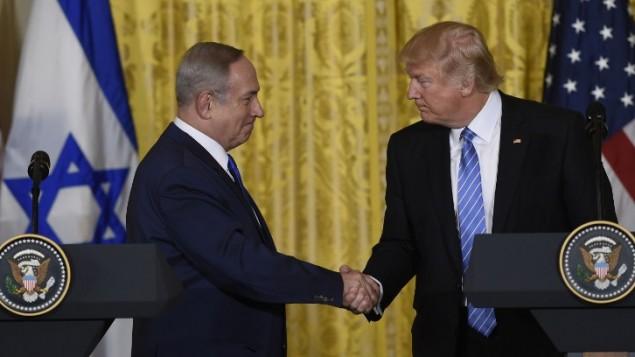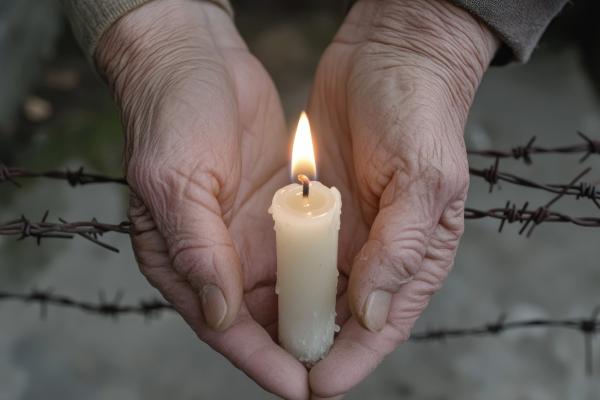President Donald Trump broke with two decades of foreign policy last week when he said the United States would no longer insist on the creation of a Palestinian state as the basis of a Middle East peace agreement.

While hosting Israeli Prime Minister Benjamin Netanyahu, the president promised to work to bring the two sides together, possibly in a regional peace effort involving multiple Arab nations. He said he was flexible on the structure of a peace deal and would not be bound by past assumptions.
“I’m looking at two-state and one-state” formulations, President Trump said at a joint White House news conference with the Prime Minister. “I like the one that both parties like . . . I can live with either one.”
The president said the U.S. would encourage “a great peace deal . . . but it is the parties themselves that must directly negotiate. Both sides will have to make compromises.”
For his part, the Prime Minister appears to have left the Washington meetings having gained some ground. He’s under pressure from his political coalition to abandon the two-state option and even annex parts of the West Bank. But he must remember that the Palestinian Authority faces pressure to form a sovereign state, especially from Hamas, the radical terror group that controls Gaza and has pledged to destroy Israel.
Netanyahu repeated his long-held demands of the Palestinians, including recognition of Israel as a Jewish state and Israel maintaining full security control over the regions west of the Jordan River. “Not only have I not abandoned these prerequisites of peace, but they have gotten stronger,” he said, asserting the Jewish historical right to the West Bank while citing Palestinian glorification of terrorism.
Most observers agree, however, that the Palestinians are unlikely to accept any deal that doesn’t offer them their own independent state. Israelis, however, are not inclined to enfold the Arab population into a single Israeli state in which Jews would be the minority and the nation would lose its Jewish character.
In other meeting highlights, President Trump:
- Vowed to prevent Iran from obtaining nuclear weapons, calling the 2015 nuclear deal between the Iranian regime and world powers one of the “worst” he’d ever seen.
- Objected to the “very, very unfair” treatment of Israel at the U.N., as well as efforts to boycott the Jewish state. “I want the Israeli people to know,” he continued, “that the United States stands with Israel in the struggle against terrorism.”
- Urged Israel to temporarily stop new housing construction in the West Bank region while he pursues a peace deal. This position keeps the president in alignment with past U.S. leaders. “I’d like to see you hold back on settlements for a little bit,” he told Netanyahu.
- Promised his administration would do everything in its power “to stop long-simmering racism.” On Tuesday of this week, the president came forth with a clearer statement against anti-Semitism as a fresh wave of bomb threats targeted U.S. Jewish community centers and 170 Jewish headstones were vandalized at a Missouri cemetery.

Bottom line: Last week’s meetings appeared to be cordial, productive, and successful at bolstering the relationship between the two leaders and countries. This is good news for Prime Minister Netanyahu, who is also benefitting from a new Gallup Poll showing that more Americans than ever have a favorable opinion of him. It all bodes well for Jewish people in Israel—and those of us who care about their safety, security, and spiritual welfare.
These meetings are clear indications of warmer relations between the two nations. Let’s pray for a continued strong relationship, one that can help ensure the ongoing security of Israel and bring greater peace and stability to the Middle East. Amen!
As you pray for Israel, I hope you’ll also give a generous gift online now to help support the Jewish people. They need our support, now more than ever, especially in this era of increasing anti-Semitism and anti-Israel sentiment. As you reach out in compassion, in the name of the Jewish Messiah Yeshua, may you be blessed according to God’s promise to Abraham in Genesis 12:3.
We can’t thank you enough for your support. You are making a difference.












